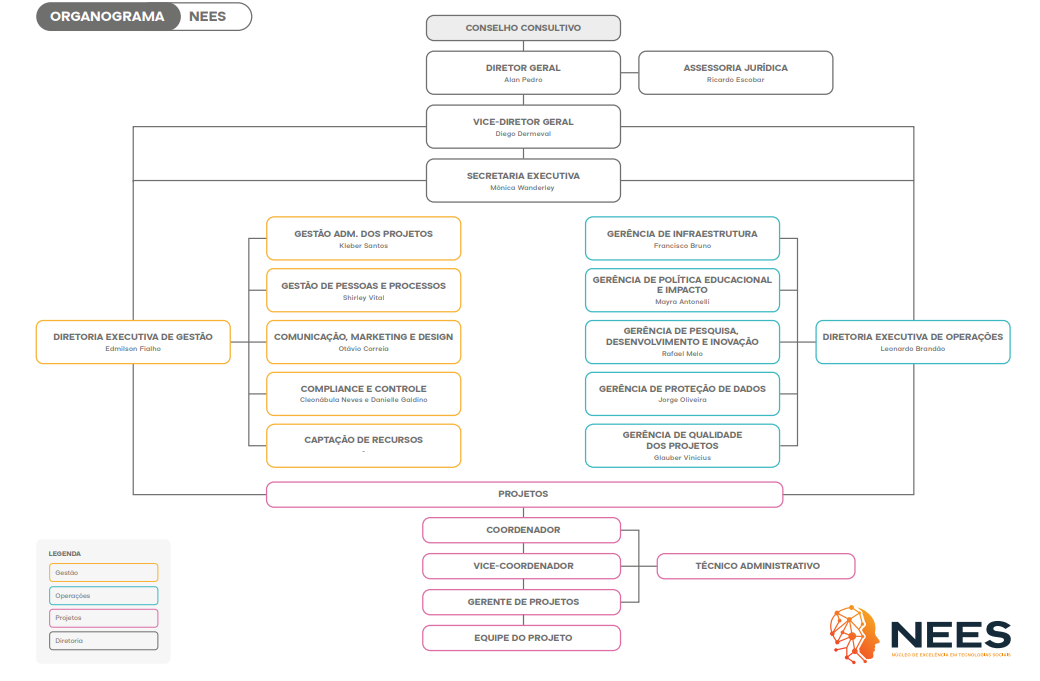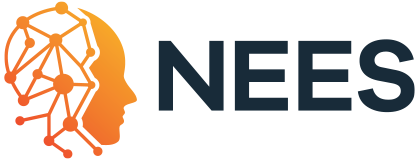NEES’ mission is to transform people’s lives by increasing the opportunities and quality of learning through the promotion of evidence-based digital transformation.
To accomplish this mission, a governance structure was built (see the image below), which establishes the director and the deputy general director as the institution’s highest-ranking positions, which are defined by a deliberative council
Currently, Alan Pedro da Silva is the general director and Diego Dermeval Medeiros da Cunha Matos is the deputy general director, besides chairing the deliberative council, which is vice-chaired by Alan Pedro.
Among the board members are seven other board members: Edmilson Gomes Fialho, Ibsen Mateus Bittencourt Santana Pinto, Ig Ibert Bittencourt Santana Pinto, Leonardo Brandão Marques, Rafael Ferreira Leite de Mello, Ranilson Oscar Araújo Paiva and Seiji Isotani.
Advisor Edmilson coordinates the team responsible for the institution’s Executive Board, which is subdivided into seven areas:
-
- Compliance & Control – Danielle Galdino e Cleonábula Neves.
- Comunication & Marketing – Otávio Correia.
- Administrative Project Management – José Augusto Rocha Neto.
- Human Resources – Shirley Jane Felix Vital.
- Executive Secretariat – Mônica Bernardo Lopes dos Santos Wanderley.
The Operations Board is coordinated by Leonardo Brandão Marques, and is subdivided into five areas of management:
-
- Infrastructure – Francisco Bruno de Souza Meneses.
- Scientific Research – Rafael Ferreira Leite de Mello.
- Educational Policy & Impact – .Mayra Antonelli Ponti
- Data Protection – Jorge Vinícios da Rocha Moreira.
- Quality Control – Glauber Vinícius Ventura de Melo Ferreira.
In addition, all projects developed by NEES count on a team managed by a coordinator, a vice-coordinator, and a projects manager.

Principles of NEES

